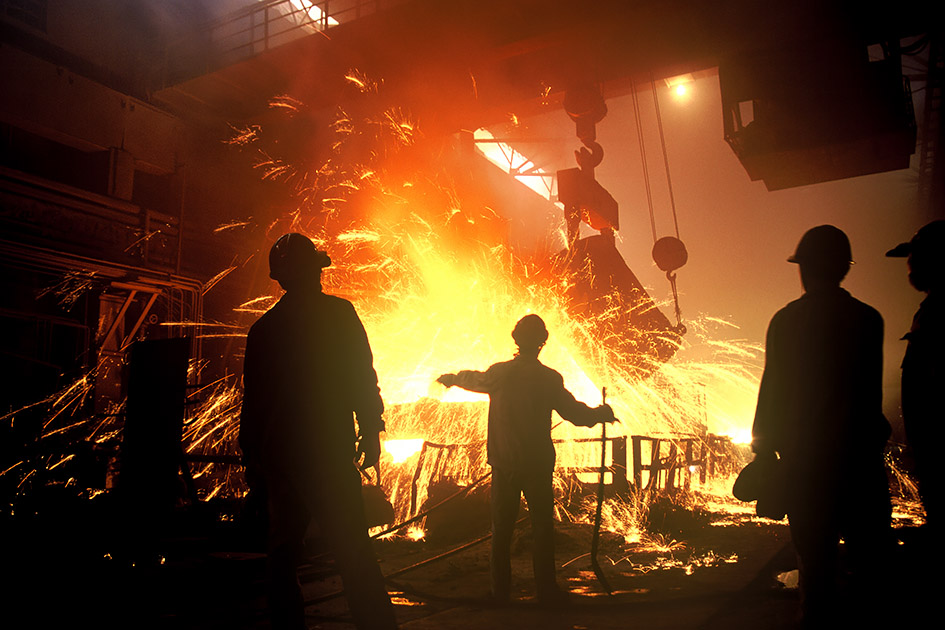Topics
TransformingBasic Industriesfor the Future
Energy-intensive industries play a major role in our economy, producing the basic materials for infrastructure, buildings, machinery and consumption goods. But they are also responsible for a vast share of energy and resource consumption and greenhouse gas emissions.
North Rhine-Westphalia (NRW) is a global hub for numerous energy-intensive industries. The development of strategies for decarbonisation and resource efficiency is not only crucial for achieving global sustainability, but also for the future of NRW’s economy. Against this background, the Wuppertal Institute works closely with representatives of leading corporations and organisations in various projects. Beyond the state of NRW, the Institute is equally active nationally, at European level and globally. Its work focuses on analysing the correlation between energy-intensive production processes and the opportunities and risks of the energy transition ("Energiewende"), identifying future low-carbon process technologies and the necessary framework conditions for their successful development and implementation.

Shaping Structural Change Innovations
The Wuppertal Institute's work spans the analysis of complex energy systems and scenarios, the assessment of resource flows along value chains and the evaluation of innovation systems in energy-intensive industries and regions. The Institute investigates possible paths for structural transformation and innovation that are compatible with economic and ecological sustainability. A special feature of the Institute’s research is transdisciplinarityhe projects are implemented in close interaction with industry actors. The aim is to explore and design sustainable paths with industry and civil society in joint learning processes and, on this basis, to develop both policy and corporate strategies. As part of this approach, the scientists accompany firms in their processes of sustainability and innovation management, addressing key areas for innovation in the value chain – such as dematerialisation, eco-design strategies and Industry 4.0.
Links

The successful transformation of basic industries is a key sector for climate neutrality and resource efficiency at regional, national and global level.
Topics
You find more information on the transformation of the economy here:
News
Here you find up-to-date information on research findings and activities.
News on the topic

Clean Technologies Can Harmonise Steelmaking and Climate Protection
A new report examines eight ways to reduce CO2 emissions from steelmaking – and finds some methods have clear advantages over others

Achieving Climate Neutrality with Direct Air Capture
Article presents for the first time the costs and resource requirements of a possible rollout in Germany in 2045

Green financing: A Catalyst for Sustainable Energy Transition in Rural China
Flagship report on green financing in China and Europe published
Publi-cations
You find all scientific publications on our publication server:
Projects
Here you find research activities in the field of energy intensive industries. A complete list is available here.
